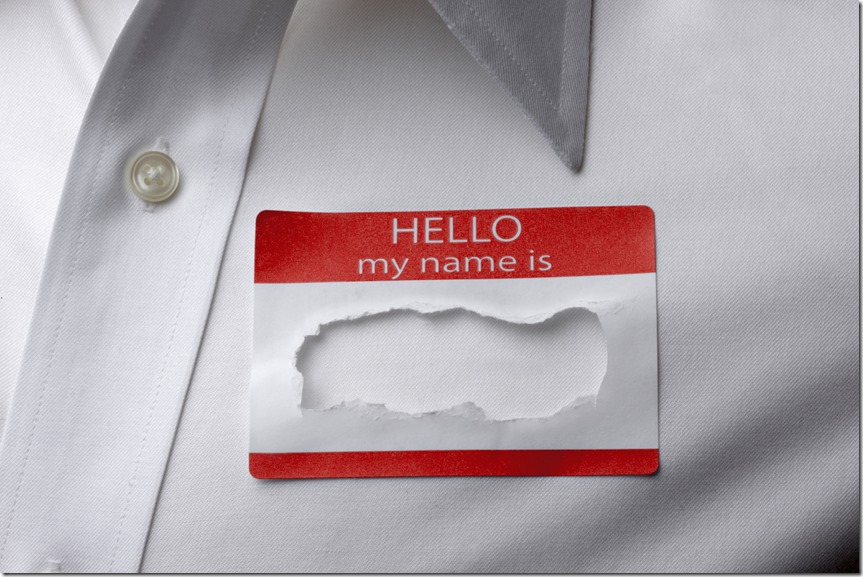A Spokesperson Must: Remember Whose Name Tag You’re Wearing
When you speak to a reporter on behalf of your company or organization, it’s rather clear on whose behalf you’re speaking. But I’ve encountered a situation several times over the past few years that makes the line a little harder to distinguish.
That situation occurs when one brand—often an uncontroversial one—partners with a more controversial brand. Sometimes, the uncontroversial brand has received a donation or sponsorship from the more controversial entity—and the spokesperson for the uncontroversial one suddenly feels pressure to stand up for their new partner.
Here’s an example of how this plays out. Let’s say you’re a spokesperson for a nonprofit organization that provides free winter coats to the homeless—nothing controversial there.
Walmart, recognizing your good work, decides to give your organization a $500,000 grant. In return for their generous donation, your nonprofit agrees to name Walmart as a “gold sponsor” and issue a press release touting the gift.
Upon issuing the press release, a reporter expresses interest in the story and presses you with a question along these lines:
“After 1,200 workers died in factory fires in Bangladesh in 2012—many of whom made products for Walmart—the company refused to aid their families and the surviving victims. Some of those people are the very types of people you serve—the poorest and most vulnerable in society. Why did you agree to team up with a company that has such an atrocious record on human rights?”
Too often, I see spokespersons rush into an answer along these lines:
“Actually, Walmart has done some great work on human rights, has improved their supply chain practices, and has increased safety at its factories worldwide.”
While that’s a noble approach for the homeless group’s spokesperson to take, a critical—and usually unhelpful shift—just occurred. Suddenly, the nonprofit’s spokesperson is acting as if they’re Walmart’s spokesperson. And you better believe that your response will only lead to additional, and often more loaded, follow-up questions.

Don’t put on another company’s name tag!
Every time you begin to answer a question on behalf of Walmart, a little voice inside your head should remind you that you’re not one of their media relations staffers. Walmart has a large communications department that can defend itself. It’s not your role.
If you’re asked a question along those lines, your main function is to narrow your responses. Here are a couple of possible answers to the question above:
“I’m not the appropriate person to discuss Walmart’s decisions in that matter, and nor am I privy to all of the details. What I do know is that their gift will allow us to provide winter coats to more than 20,000 homeless men, women, and children across the country.”
or
“The conversation about human rights for workers is a critical one, and I’m glad it’s occurring—but our group’s expertise is delivering winter coats to homeless people in need. I can only comment on issues that we work on and in which I have a specific expertise. Along those lines, we’re thrilled to have the opportunity to deliver many more thousands of coats to people in need as a result of this donation.”
There’s one additional question that can trip up a spokesperson in this situation—the “how does it make you feel?” question:
“But given Walmart’s human rights track record, are you personally comfortable taking their money?”
For the purposes of this post, I’ll assume the answer to that question is yes. (If you’re not comfortable with it, you might pass the interview to someone else within your organization who is.) Your response might be along these lines:
“When one of our volunteers steps out of our van on a 10-degree day and places a coat over the shoulders of a homeless woman who was at risk of freezing to death, they’re not asking which company donated money to buy them that coat. When we see that life potentially being saved, yes, I’m comfortable that we’ve done the right thing—and we’d ask any other potential sponsors who feel the same way to get in touch with us.”




This post should be required reading, Mr. Phillips. I can see so many parallels with politicians, surrogates, and endorsements too. Unfortunately, politicians don’t really produce a tangible product of goodness when they endorse another candidate or give a campaign donation, but I wonder why so many politicians fumble questions about whether they share the same views as their campaign supporters?